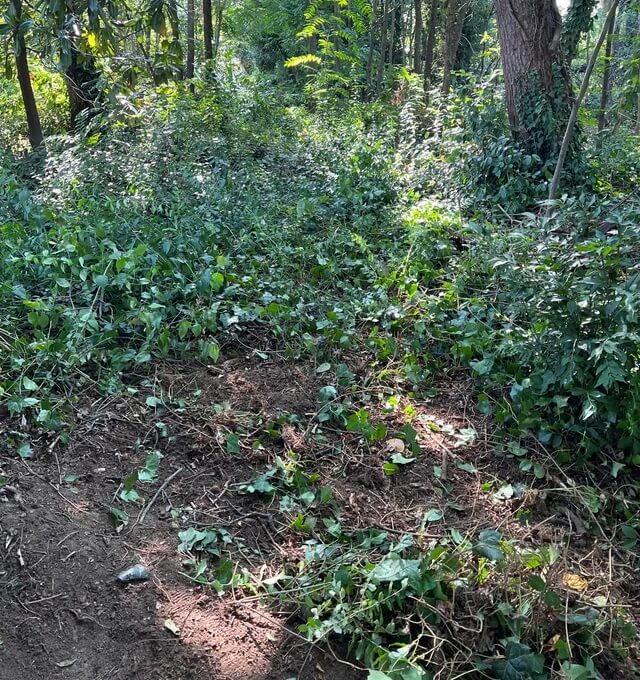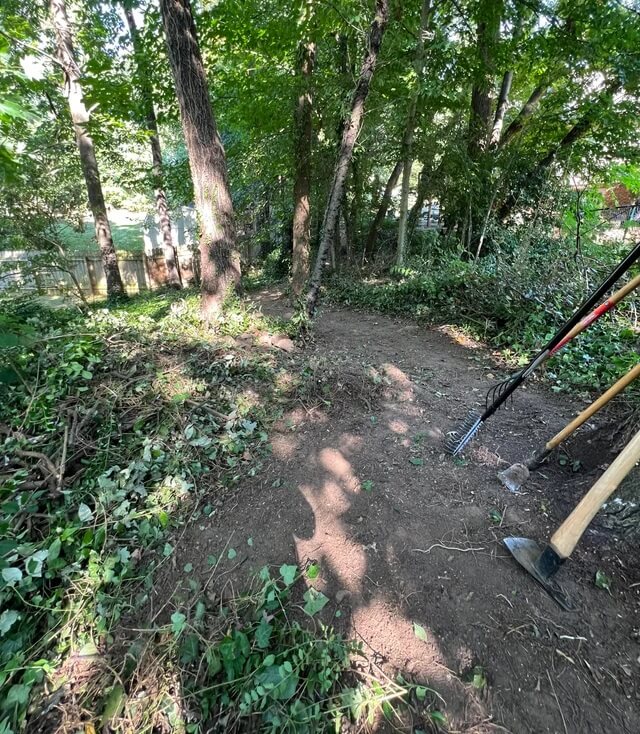A Redditor earned the admiration of the r/NativePlantGardening thread for their efforts to remove an invasive species that had taken over their yard.
The English ivy covered much of the ground in the four photos shared, and it had also enveloped at least a couple of trees, though a wide dirt path had been cleared.
"My wife and I purchased our first house about two years ago," the poster wrote, "[and most] of the lot was a thicket of invasives. Last year, I went through and cut down all the honeysuckle, privet, thorny olive, et al., and this year I'm making trails so that I can start reintroducing natives."


One commenter, a landscaper, offered a tip for removing the ivy, noting they wouldn't guarantee clients that a herbicide would be effective.
"I found it helpful to start to roll the above ground tendrils into large log-shaped rolls and take a hori knife to the roots that appear, digging them out with the knife," they wrote. "Goes smoothly and faster than you think and the only way to see clearly what's happening underneath. Once you have the roll started, the tension of rolling it does have the removal for you."
No matter how you go about it, it's important to eradicate invasive species, which can spread aggressively without natural predators, edge out native species, devastate ecosystems, and cost a lot of money, according to The Nature Conservancy.
These threats degrade soil and cause erosion and water-quality issues; kill trees that absorb carbon and provide shade and wildlife habitat; and increase the risk of wildfire.
In particular, English ivy impedes photosynthesis for trees, and it also harbors a pathogen that goes after trees such as elms, oaks, and maples. In another social media post, a TikToker described it as "one of the worst invasive species in America."
To keep invasives at bay, you can plant native species — but beware, because stores have been known to sell their dangerous counterparts. Also, clean your hiking boots and boat; make sure you don't accidentally transport insects or animals; and do not release fish, plants, or bait into the wild.
Many users touted the poster's strength and resolve.
"That's a hell of a lot of work," one commenter wrote. "Respect."
Another said: "Hell yes nice work. Just bought my second house but first time having a real yard. Also full of invasives but I'm working my way through them bit by bit."
Join our free newsletter for easy tips to save more, waste less, and help yourself while helping the planet.









